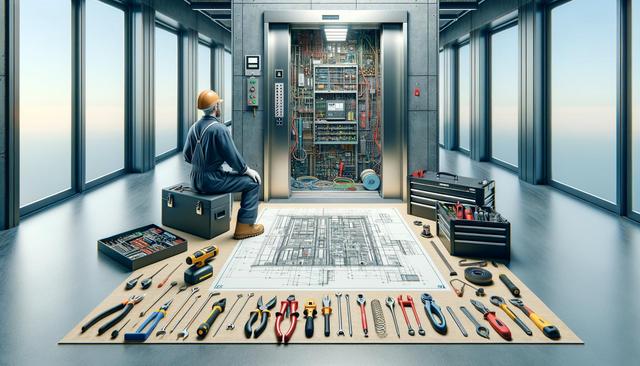Understanding the Role of an Elevator Technician
Elevator repair technicians are responsible for installing, maintaining, and repairing elevators, escalators, and similar systems in buildings. These systems are crucial for vertical transportation in residential, commercial, and industrial settings. The job requires a combination of mechanical skills, electrical knowledge, and a strong understanding of safety standards. As such, elevator mechanic training is designed to equip students with both theoretical knowledge and practical experience to meet the demands of the trade. Technicians often work in teams and must be ready to respond to service calls at various times, including emergencies.
In the field, technicians often encounter a range of issues including stuck elevators, motor malfunctions, and worn-out cables, making troubleshooting and diagnostic skills essential. The ability to read blueprints, follow technical manuals, and use diagnostic tools effectively is also a key part of the job. This makes comprehensive training essential, as the work is both physically demanding and highly technical.
Core Curriculum in Elevator Mechanic Training Programs
A typical elevator mechanic training program is structured to provide a mix of classroom instruction and hands-on experience. Students can expect to cover a variety of subjects that build a solid foundation in both mechanical and electrical systems. Some of the main topics include:
- Electrical theory and wiring systems
- Hydraulic and traction elevator systems
- Mechanical safety and OSHA regulations
- Blueprint reading and equipment schematics
- Maintenance procedures and troubleshooting techniques
These programs often include modules on how to use various tools, from basic wrenches to advanced diagnostic equipment. Safety training is a major focus, with emphasis on fall protection, lockout/tagout procedures, and proper use of personal protective equipment. By the time students complete the coursework, they are typically well-prepared to begin an apprenticeship or entry-level technician role.
The Importance of Apprenticeships and Certifications
While formal education provides foundational knowledge, real-world experience is critical in the elevator repair industry. Most technicians enter the field through apprenticeships, which allow them to work under the supervision of experienced professionals. These apprenticeships typically last four to five years and include both paid on-the-job training and classroom instruction. During this time, apprentices become familiar with a wide range of equipment and real-world repair scenarios.
Upon completing an apprenticeship, technicians may need to obtain licensure or certification depending on local or regional regulations. Certifications often involve passing exams that test both practical and theoretical knowledge. Some programs also offer preparation for these exams as part of the training. Achieving certification not only demonstrates a high level of competence but also opens up more job opportunities and higher earning potential.
Tools and Technologies You’ll Learn to Use
Modern elevator systems are becoming increasingly complex, integrating digital technologies alongside traditional mechanical components. As a result, elevator mechanic training includes instruction on a wide array of tools and technologies. Trainees learn to use diagnostic software that connects to elevator control systems, allowing them to interpret error codes and system logs. In addition, they work with mechanical tools such as:
- Multimeters and circuit testers
- Torque wrenches and screwdrivers
- Hydraulic gauges and pressure meters
- Welding and cutting equipment for specific repairs
Understanding how to work with these tools is essential for diagnosing issues accurately and repairing them efficiently. Training also covers how to maintain these tools, ensuring longevity and safe operation. With the increasing use of smart elevator systems in buildings, familiarity with networking components and programmable logic controllers (PLCs) is becoming more important as well.
Career Outlook and Professional Growth
Elevator technicians are in high demand due to the ongoing construction of multi-story buildings and the need to maintain aging infrastructure. The job market for skilled repair technicians is expected to remain strong, particularly in urban areas where elevators are essential. Completing a training program is often the first step in a long and stable career path, with opportunities to advance into supervisory or specialized technical roles over time.
Many technicians move into roles such as maintenance supervisors, safety inspectors, or even start their own service businesses. Continual learning through workshops and advanced certifications helps professionals stay current with new technologies and safety standards. The trade also offers solid income potential and job security, making it an appealing choice for those looking for a hands-on, technically oriented career.
Conclusion: Preparing for a Reliable and Rewarding Career
Elevator mechanic training offers a structured path into a trade that combines technical skills with practical problem-solving. From learning the basics of electrical wiring to mastering complex diagnostic tools, students gain the knowledge and hands-on experience needed to succeed in the field. With strong demand for qualified technicians and opportunities for career advancement, this training can be a smart investment for individuals seeking a stable and rewarding profession in the skilled trades.




Leave a Reply